Panopticon Chic
What happens when artists get their hands on camera glasses and bodycams?
Barely anything that truly makes me pause on the internet is shot using traditional, modern camera tech. I appreciate the grainy texture of film photos and the fast, smooth zoom of a shitty camcorder, but more than anything, I love an artist who has the guts to throw something completely different at their audience. I love those viral Marc Jacobs videos featuring Lil Uzi Vert and FKA Twigs, and Jack Harlow’s Hello Miss Johnson video — both shot by Yulya Shadrinky using what looks like security cameras. I am amused by Ben Nunez’s art project in which he wore a police bodycam for a full year and uploaded each day to a public YouTube channel. I love this BITTER000000 video produced by Liv Solomon that’s shot using a pair of spy glasses. They make the tech that usually makes me uncomfortable feel like an opportunity for creative expression.
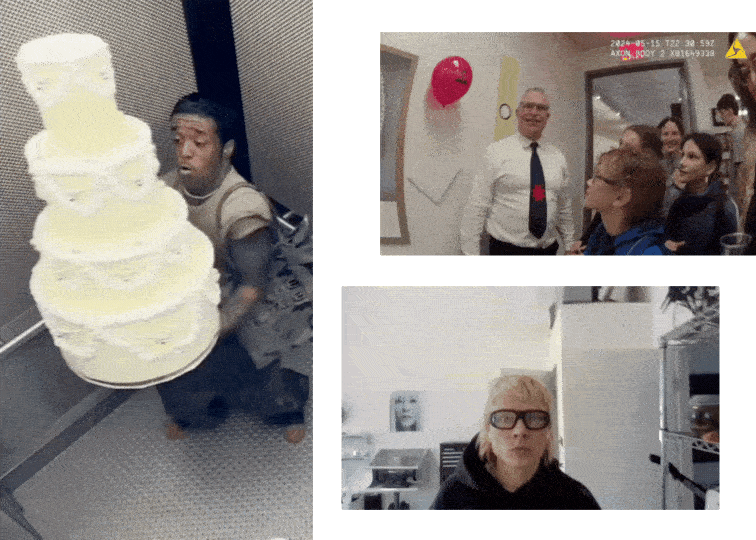
When two years ago, Zuck announced the Ray-Ban Meta partnership, most people I know were disturbed — a creepy tech nerd discreetly recording you in public was the first and only use case that popped into our heads. It also felt like a step further into the dystopian future that we dread — a self-imposed surveillance state, the main character epidemic, and the online and offline worlds slowly but surely melting together. There is nothing that kills my vibe more than turning my head in a $40 workout class and getting a glimpse of someone’s phone propped up in the corner or watching a teenager in front of me at a concert record the entire thing and plop it on their Snap story.
Lately through, I’ve been hearing from the artists and creatives I like that they are curious about the smart glasses. Some of them even quietly asked Meta for a free pair to play around with, and that doesn’t include the ones who got paid to wear them during Fashion Week. While most of them couldn’t care less about the AI assistant part, they are intrigued by the built-in camera — if only its high resolution didn't make it so commercial. “I didn’t like the way the footage looks,” Liv Solomon tells me about her experience trying out the Meta glasses. “It just kind of mimics an iPhone camera and that, to me, feels redundant. At that point, you can just hold up an iPhone and take a video.”
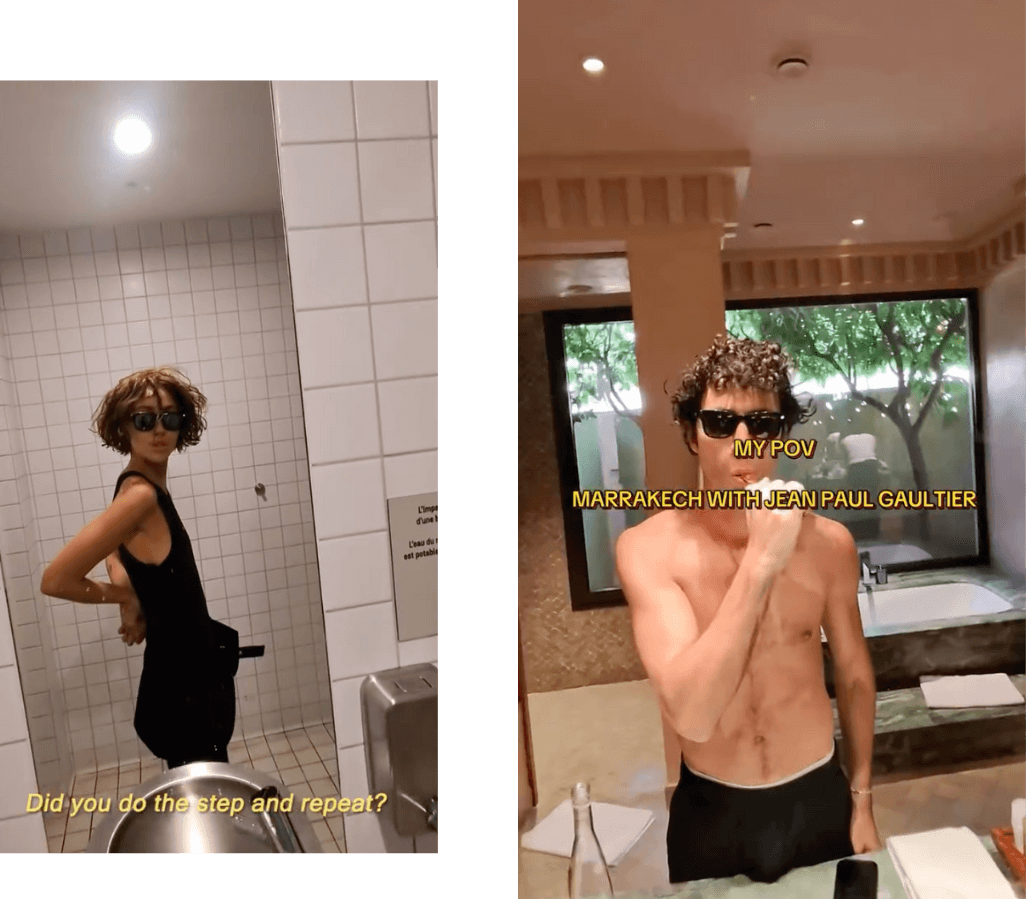
For that BITER000000 project that she produced for Office magazine, she went with a random pair of cheap camera glasses from Amazon. It was a combination of wanting to capture the raw Uncut Gems vibe of New York City’s Diamond District and show the intimate process of making jewelry — both of which aren’t outsider-friendly — that led her to the idea of using spy glasses in the first place, she explains. Besides the moody texture that creates an interesting visual aesthetic, they also added layers of meaning to the project. There is something about sneaking in a recording device into a place full of hidden cameras, documenting the entirety of the creative process, and the videographer passing over the controls to her subjects that turns up the thrill and the level of trust required to pull the project off.
Unlike an iPhone or a proper modern camera that become invisible in the final cut, surveillance tech is a character of its own that has the power to turn the most mundane happenings into a cultural statement or at the very least, make the final piece technically impressive. Eugene Kotlyarenko’s latest movie The Code is a great example of how a project can benefit from it. Patched up from the footage captured on more than 70 cameras, including security cameras, spy glasses, and 360° camera mounted on a head strap, it follows a troubled young couple, Celine and Jay, caught up in a downward spiral of mutual surveillance. When Jay suspects that Celine’s urge to make a “COVID documentary” is actually a ploy to damage his reputation, he gets a bunch of hidden cameras to catch her saying or doing something horrible as a form of insurance.
Because of the film’s amateur production style, abundance of POV footage, and characters frequently looking and speaking directly into the camera, the viewer ends up becoming the third main character of the film. Halfway through, it becomes hard to draw the line between Jay’s and Celine’s personalities and performances — an allegory for how our online and office behaviors are shaped by the casual panopticon we’ve collectively built. Throughout the film, the characters set up so many uncomfortable, vulnerable, and invasive “scenes” that it’s unclear who wants to stick around more — the viewer who is curious to see how this train wreck of a relationship ends, or the characters who need the viewer to see their side in the anxious anticipation of the finale.
Unlike other art and creative projects of this genre, like Harmony Korine’s Baby Invasion, Black Mirror, or even Kotlyarenko’s earlier movie Spree, The Code not only provides the audience with an experience and food for thought, it tells a real story. It takes the subject of mutual surveillance and the social dynamics that unravel around it, out of that video game, sci-fi context that makes these projects feel like an exaggerated portrayal of a distant dystopian future that the viewer brushes off the second the credits roll. It feels like we are only scratching the surface in terms of how the voluntary wish to sacrifice the last remnants of privacy in search of safety, intimacy, attention, and self-expression has impacted our social lives, careers, and daily routines. These stories are current and so painfully trivial that perhaps, using alt camera tech to capture them might be the best way to communicate how important and nuanced they are without turning them into a violent, disturbing spectacle.
But even on a more casual level, it’s an opportunity to have fun, challenge yourself creatively, and shake up the dynamics within existing cultural institutions. Jacquemus threw off its camera-ready fashion show guests with a hidden camera placed in an elevator — the response was so positive that Tory Burch copied the concept a few days later. Moni Haworth shot this surveillance camera-esque cover story for The Face where Yeat got to play a weird blurry character rather than be a human billboard for Chrome Hearts and Acne Studios. Jason Stewart threw on a bodycam-looking setup to record himself cooking green wings for a subtle comedic effect. Although cumulatively, all of these innocent projects still prompt a larger discussion about the way public attention has shifted away from the main act towards backstage, how the power dynamics between the audience, the talent, and the crew constantly fluctuate, and whether we are getting fed up with authenticity.
“It’s a matter of time before we see people who do have an interesting approach get their hands on these [smart glasses],” Liv tells me as she draws a comparison to Pavel Golik and Juergen Teller figuring out a way to shoot compelling editorial content on an iPhone. It’s a matter of giving someone, like Nadia Lee Cohen who has already worn smart glasses to a Coperni show, a check and an empty brief for them to catch on. It’s a matter of throwing an atmospheric house track over one more Uncut Gem-style video for me personally to order a pair of bootleg camera glasses on Amazon. Where does this urge to experiment and reclaim the tech that frightens us in an act of “empowering exhibitionism” take the casual panopticon and every conversation that surrounds it? That, I am not so sure of.
IN THE MARGINS
Thank you for all the love on Real Girls Report! Reminder that there are two more chapters about real girls’ fashion and lifestyle waiting for you here.
30+ new additions to Busy Corner this week — references, talent, magazines, book stores, and more.
Google partnered with Warby Parker and Gentle Monster to design the Android XR glasses.
Cosmopolitan introduced a new wearable tech column “Locked In” (lol). The spring and summer issues feature Alice McNally and Emma Rogue wearing AirPod Max and Oura rings. Eva Chen’s dialing.



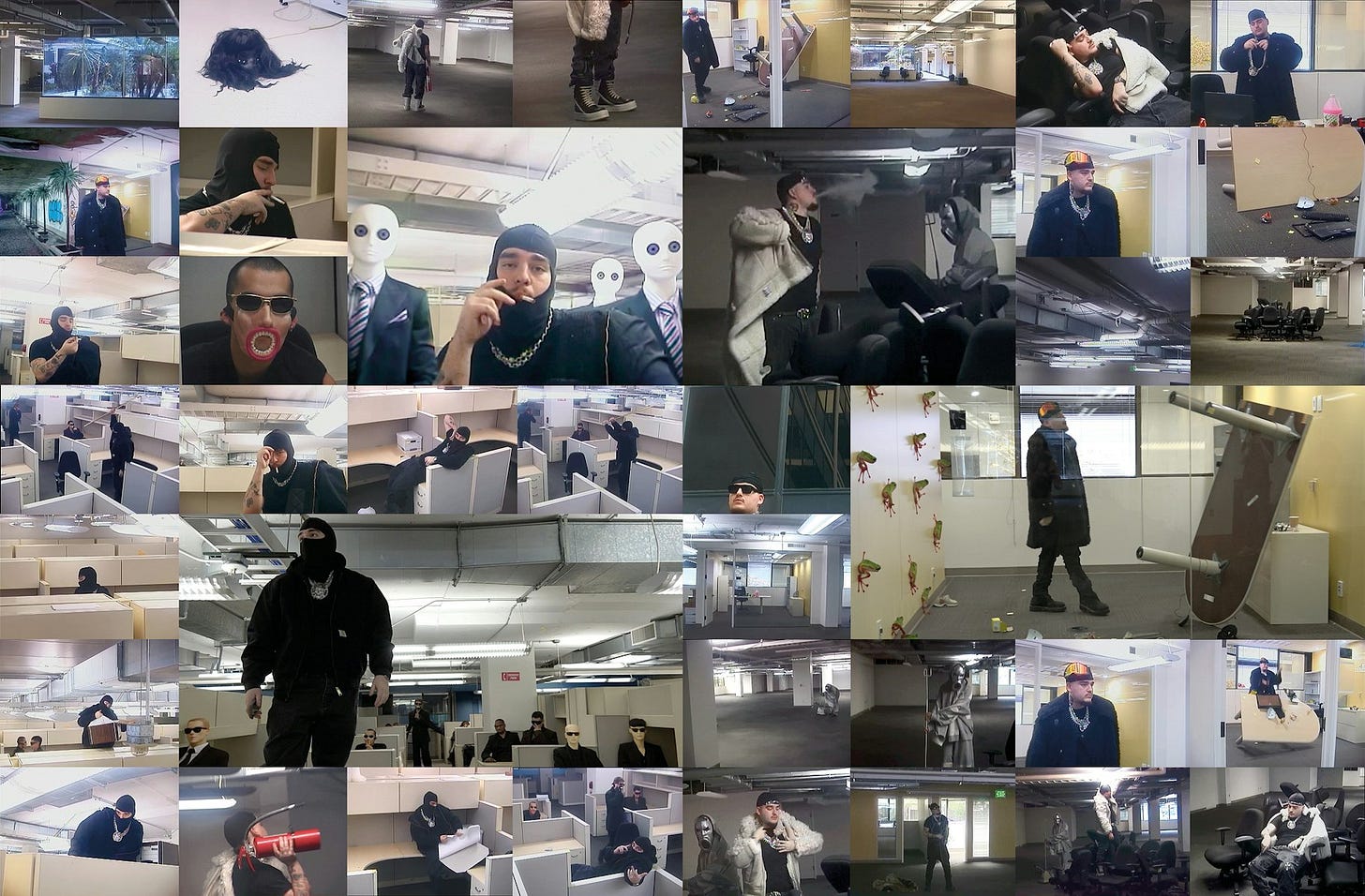
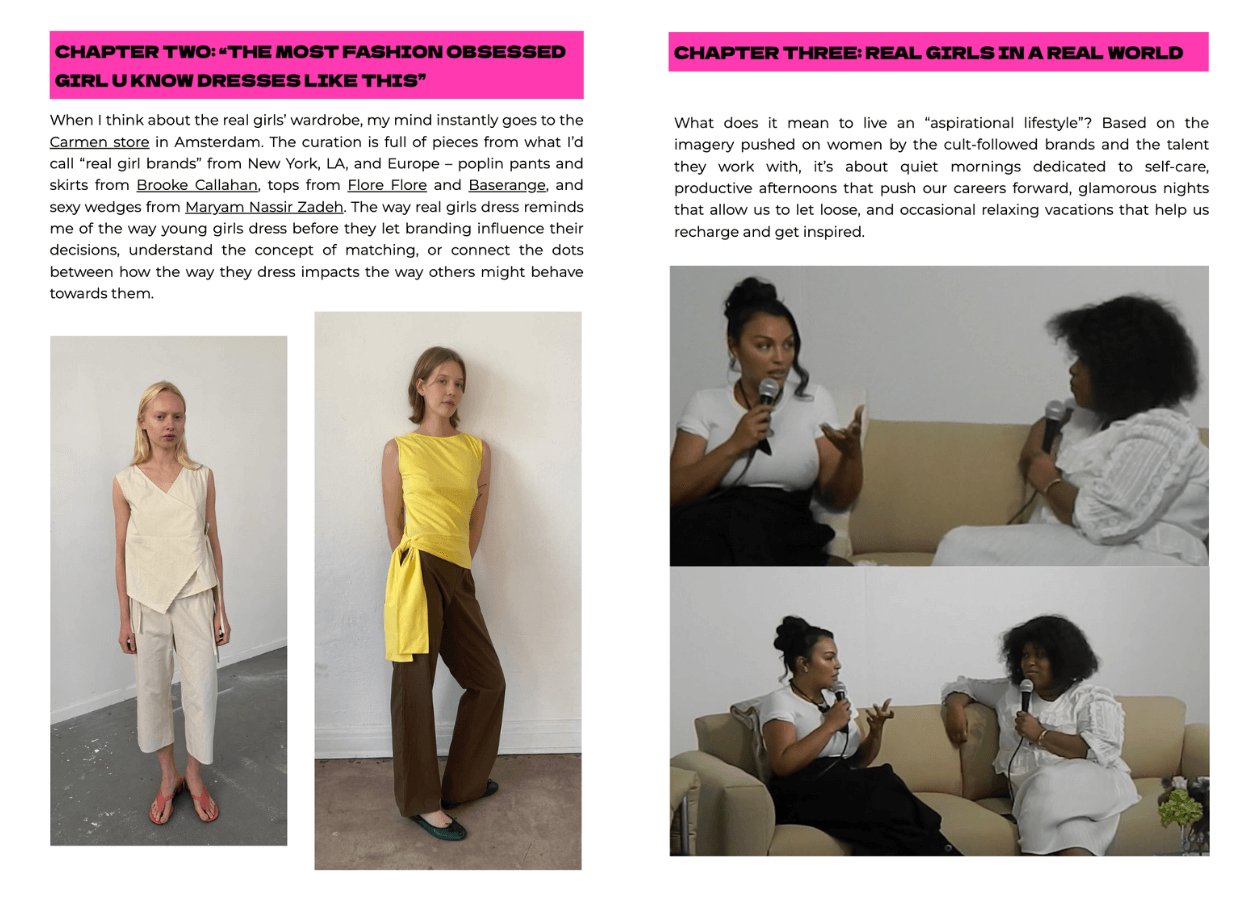
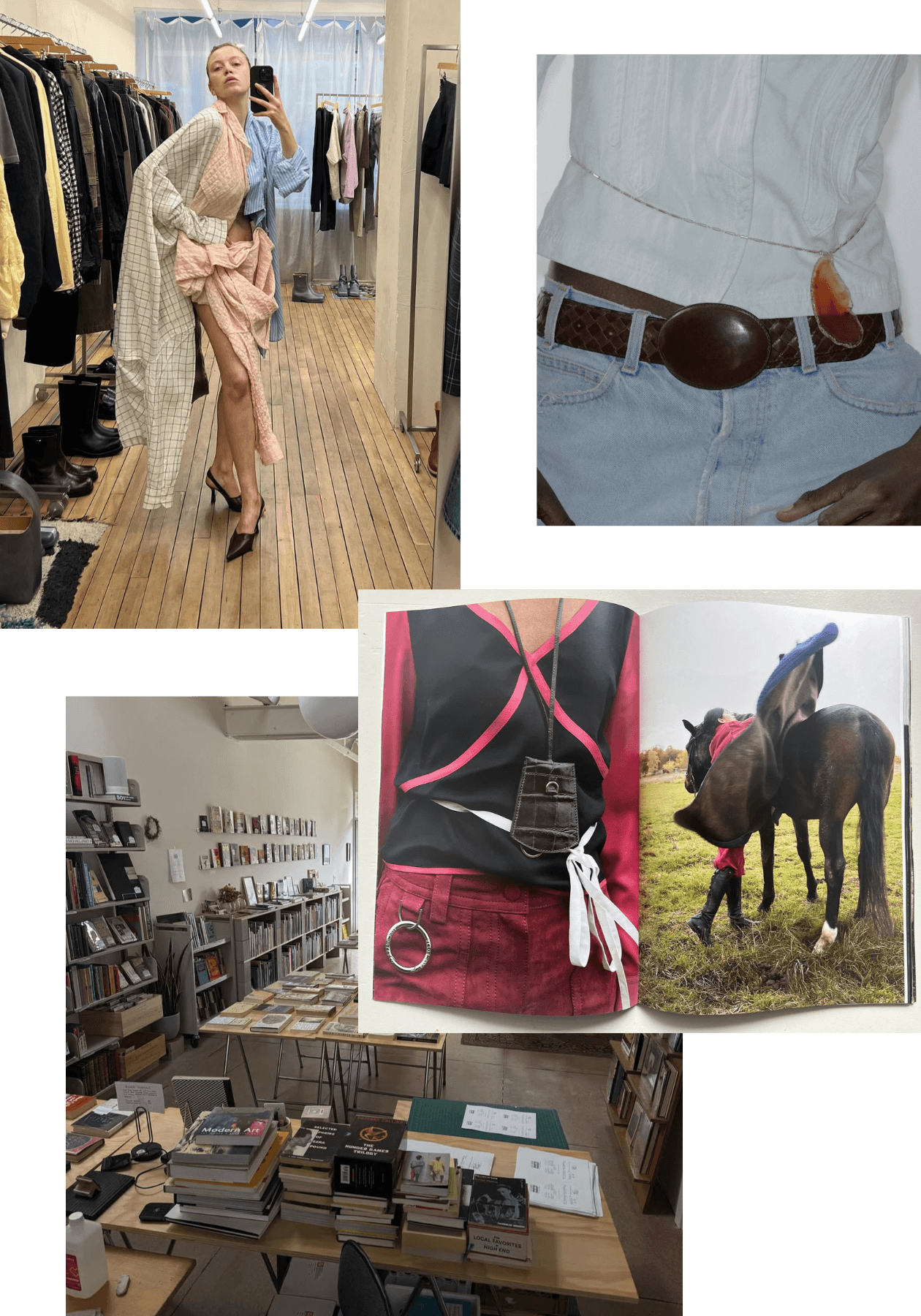
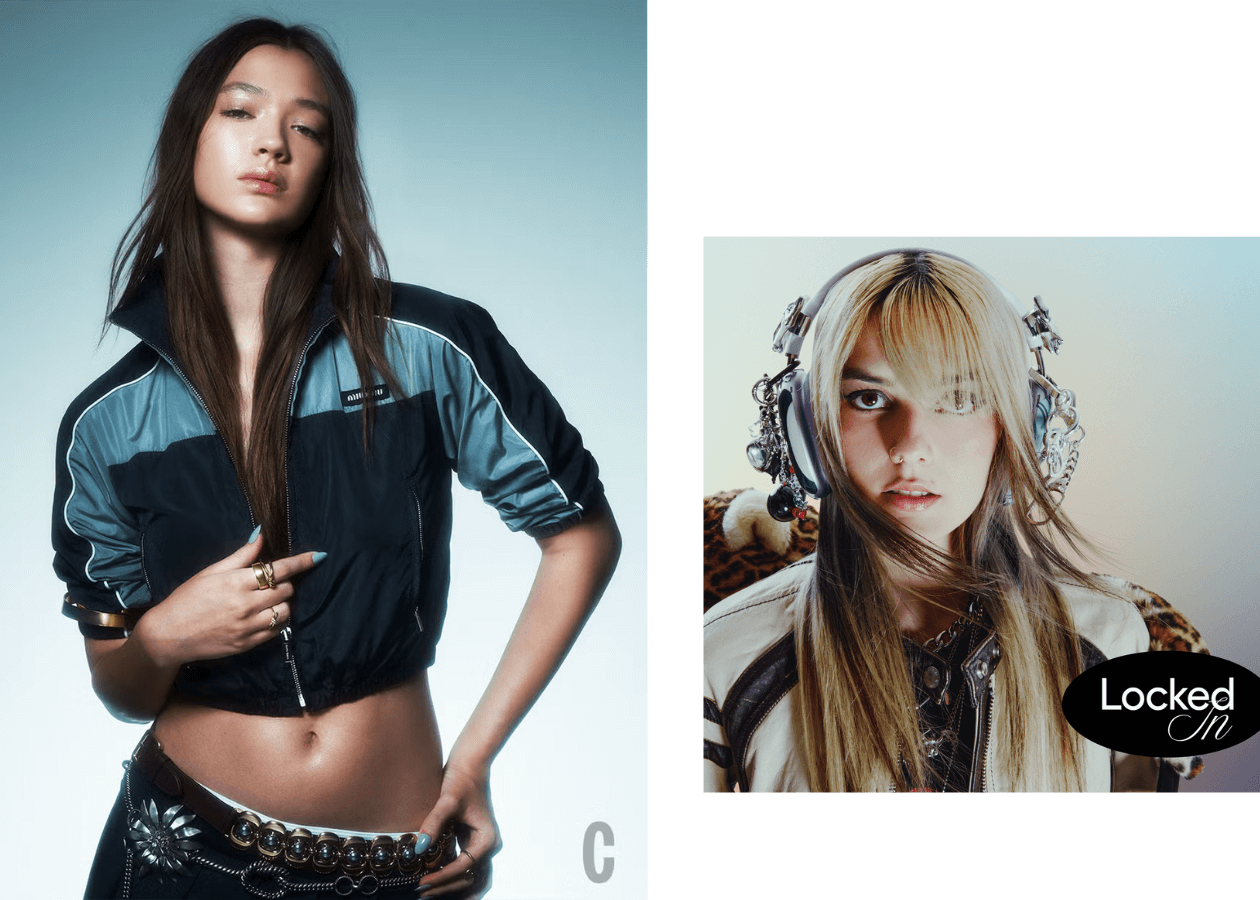
Love this
I am never, ever unfollowing you after this one. Really great - the tying together of how different artists have been using the tech was cool enough, bringing up questions around what it means to create with/reclaim tech that scares us made my brain buzz!